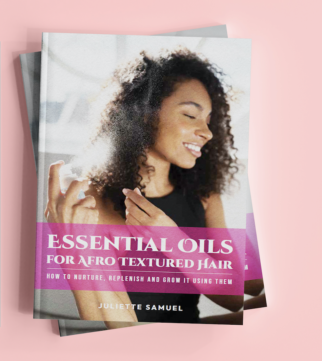Where Did Mineral Makeup Come From?
Did you know that the use of minerals as makeup can be traced to the ancient Egyptians? It is said that they believed being beautiful could bring you closer to the gods. Minerals like kohl and red ochre were used on their eyes, lips and cheeks.
It wasn’t until the late 1970’s that commercial mineral makeup was created to give women an alternative for healthy, natural looking skin.
In the mid 1990’s, brands were born that would begin to take the approach of natural looking makeup to new heights, so to speak.
How Can You Tell If Your Makeup Is 100% Minerals?
This becomes the 64,000 dollar question because mineral makeup can be formulated to contain all minerals, part minerals or 1% minerals. This makes it so important for you to read the labels when looking for one to purchase, especially for black skin.
Since the FDA requires that all ingredients be listed in descending order, this will help you to see what ingredients top the list.
What Are the Benefits of Mineral Makeup For Black Skin?
Mineral makeup is typically formulated to include broad spectrum UVA and UVB protection to help shield your skin from the suns’ harmful rays.
Don’t think it can harm your beautiful black skin? Why do you think your grandmothers wore hats when working in the fields or walking to church? They understood and respected what the sun was capable of doing to their skin.
Mineral makeup also contains antioxidants that combat free radicals that pollute your skin. Most mineral makeup has an SPF of 15.
There are also formulas that aim to prevent water loss, which can cause your skin to hydrate and become dry.
A good quality mineral makeup will be noncomedogenic, anti-inflammatory and antibacterial. It will also have the potential to work on sensitive and acne prone skin. Mineral makeup is known as being friendly to sensitive skin.
What Makes Mineral Makeup Different?
Unlike traditional makeup, mineral makeup feels lighter, is much easier to blend and it can help absorb oils. This helps in managing the shine for longer wear.
Most mineral make up has an indefinite shelf life, while most traditional makeup has a shelf life of 24 months at best, before going rancid. Even that seems like a long time for something to be on your shelf, especially when you’ll be using it on your face.
Mineral makeup doesn’t contain fillers, so it’s able to give you exceptional coverage without using a lot of the product.
What Ingredients Are In a Good Mineral Makeup?
Titanium Dioxide – typically used as a UV absorber, it offers more covering power. And it’s listed by the FDA as one of the most effective active ingredients for sun protection.
Zinc Oxide – Is used as an anti-inflammatory as well as a broad spectrum UVA and UVB reflector. It is said that Zinc Oxide encourages the healing of a variety of skin conditions.
Iron Oxide – They vary in hue from red to black and provide moisture-resistant opacity that helps your makeup slide easily into your skin. Iron Oxide is primarily used as a coloring ingredient.
Mica – Mica varies in color and is used for reflective and refractive properties. It also has the ability to appear matte or to sparkle. Mica is found in nature as thin crystallized sheets.
How Should You Apply Mineral Makeup?
For A Sheer Look – There seems to be a general consensus among makeup artist that mineral makeup should be applied with what’s known as a Kabuki brush.
This brush has dome shaped bristles that allow for medium to full coverage and allows you to achieve a sheer complexion and weightless feel to your makeup.
First Time- Less Is More– If it’s your first time wearing mineral makeup, it’s possible you’ll encounter the problem of applying too much. Your choice of brush is crucial. Using the wrong brush can cause you to use too much makeup which will result in a cakey and uneven look.
Just The Spots Please – Mineral makeup is very versatile. You can use it for all over even coverage or use a foundation sponge for spot coverage. Either way, you’re covered.
Here’s What You’ve Told Me
From makeup artist to you, my treasured clients, some of you love mineral makeup and some of you don’t like it at all. What I learned is that you don’t like the idea of it not being what you’re used to.
But once you get used to the technique of applying it, it becomes a wonderful product for your skin. It’s natural, it allows your skin to breathe and you’re not piling a lot of chemicals on your skin in the name of beauty.
Dedicated To Your Beauty,
Juliette Samuel
Author/Esthetician/Publisher




 Facebook
Facebook Twitter
Twitter Delicious
Delicious Digg
Digg Myspace
Myspace StumbleUpon
StumbleUpon Youtube
Youtube